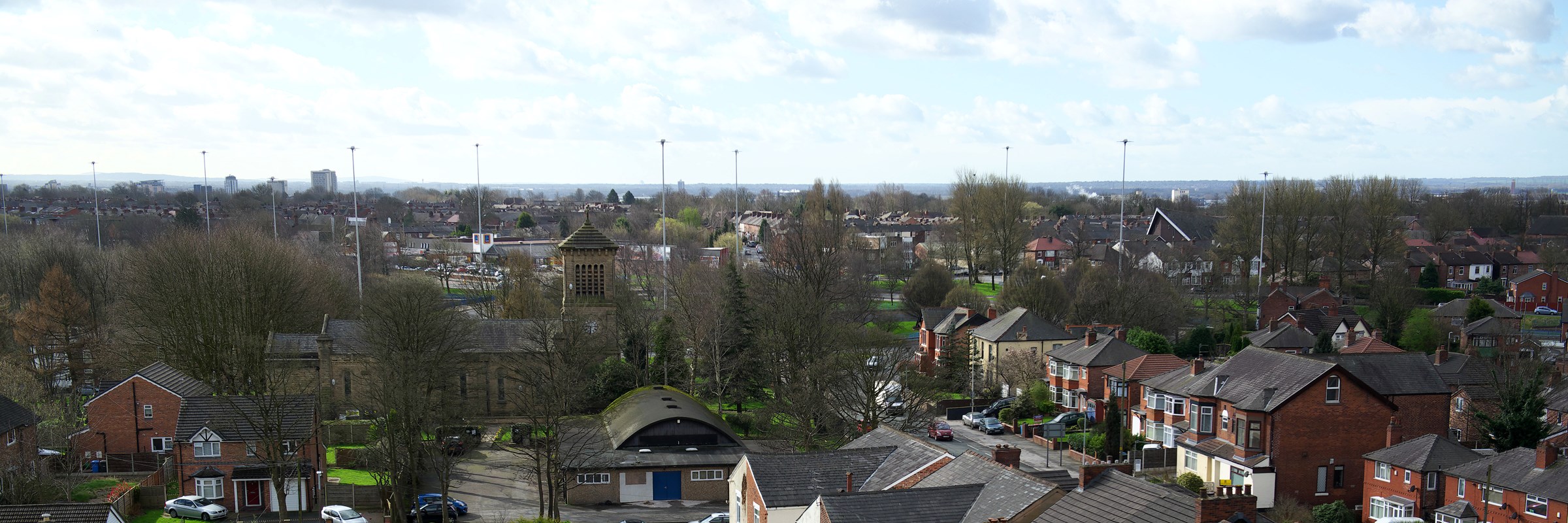
Energy plans to make Greater Manchester carbon neutral by 2038 agreed
Greater Manchester has set out a detailed pathway for the energy infrastructure changes needed across the city region so it can meet its ambition of being carbon neutral by 2038.
Following approval at a meeting of the Greater Manchester Combined Authority on 30 September, the city region is the first in the country to produce and adopt Local Area Energy Plans (LAEPs).
The plans, one for each of the ten Greater Manchester districts as well as an overall one for the city region, detail the current position and a roadmap towards a decarbonised future. They also identify key decisions that are needed to determine the longer-term decarbonisation pathway for the city region.
For the near-term activity, the region will need to deliver the following measures over the next five years:
- 140,000 additional homes with fabric retrofit
- Nearly 2 GW of additional rooftop solar panels on homes
- 190,000 vehicles replaced by electric alternatives
- 8,000 additional homes connected to heat networks
- 116,000 additional heat pumps in homes
Similar levels of interventions in public, commercial and industrial buildings and fleets will also be needed, with public sector buildings making up over seven per cent of Greater Manchester’s non-domestic building stock. This will include the opportunity for over 2.5GW of non-domestic rooftop solar panels.
These figures will need to rise dramatically over the coming fifteen years, with around a million heat pumps in homes and a million electric vehicles needing charging by 2038, meaning work to enhance Greater Manchester’s local electricity network and to find options for flexibility on the grid.
With urgent action required across the region, in the near-term and through to 2030, to achieve the 2038 carbon neutrality target, a key focus of the LAEPs is to:
- Set out priority areas for different elements of the energy system in Greater Manchester, including insulation measures
- Identify areas where heat pumps and heat networks are cost effective to use. Action in these areas could transition the heating systems of around 120,000 homes, making them both less reliant on carbon and more affordable to heat.
- identify priority/opportunity areas for the introduction of other technologies at pace
- continue to build capability, capacity and understanding so further wide-scale transition can be delivered
Councillor Martyn Cox, Lead for Green City Region and Waste, said: “The need for us to make systematic changes to the way we produce and consume energy is absolutely vital and in Greater Manchester we intend to drive that on a local level.
“We’re serious about making the changes needed to reach our target of making Greater Manchester carbon neutral by 2038 and we are once again leading the way by becoming the first city region in the country to develop and adopt Local Area Energy Plans.
“Our plans reduce uncertainty around what changes and initiatives each district in Greater Manchester need to make to drive us to a decarbonised future. By providing a strong roadmap and sense of direction, we want to encourage greater investment in low carbon technologies and business growth in sectors which support the net zero carbon transition. At the same time, our carbon-friendly solutions will reduce people’s cost of living with lower energy bills and more attractive and affordable public transport, creating a greener and fairer Greater Manchester.”
Read the Local Energy Actions Plans in full.
Article Published: 30/09/2022 10:46 AM